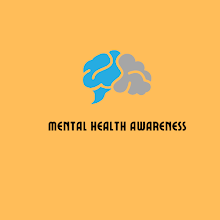
In this post, I will examine one of the core components of depression. The conviction that there is no hope. If you believe that there is no hope for your difficulties, you are more inclined to quit, isolate yourself, get melancholy, and ruminate.
I've discovered that one of the first topics I want to discuss with my patients is despondency. Your willingness to try new methods, approaches, or treatments may increase if you realize that your mood might alter. Your ability to try new habits may be boosted by changing your routine or environment. And converting your perspective can pave the way for taking action to overcome your depression.
Living without excitement, enthusiasm, or positive anticipation can be difficult. But the feeling of hopelessness need not last forever.
Once there is hope is connected then hopelessness is overcome at the maximum level. With the increase of hope, all kinds of negative thoughts vanish and the negative view of self-image is corrected.
Hope is connected to the satisfaction of basic necessities.
Hope Fundamental Requirements:
- Attachment: Hope for closeness on a bodily level, closeness on an emotional level, and spiritual oneness.
- Mastery:A goal of productivity and success is mastery.
- Survival: Hope for overcoming obstacles such as physical pain, anxiety, grief, and fear as well as for developing resilience
If these needs are met, we persuade ourselves that everything is okay there, and we act on that belief.
- Attachment: "The Universe is loving and open; I'm connected," one might say.
- Mastery: "I can depend on collaboration; help is available; I feel empowered."
- Survival: "I'm safe and can rely on myself; protection is attainable."
Types Of Hopelessness:

- Alienation (attachment hopes).
- Forsakenness (attachment and survival hopes).
- Not feeling inspired (attachment and mastery hopes).
- Powerlessness (mastery hopes).
- Oppression (attachment and mastery hopes).
- Limitedness (mastery and survival hopes).
- Doom (survival hopes).
- Captivity (survival and attachment hopes).
- Helplessness (survival and mastery hopes).
How to Overcome hopelessness?
- Consider the possibility that your brain is lying to you.
- Defend the reverse.
- Think about what you gain from being hopeless.
- Think about the benefits of developing hope.
- Exercise problem-solving skills.
- Consult a reliable friend or family member.
- Do something productive and attention-keeping.
- Get professional assistance.

%20(1).png)


0 Comments